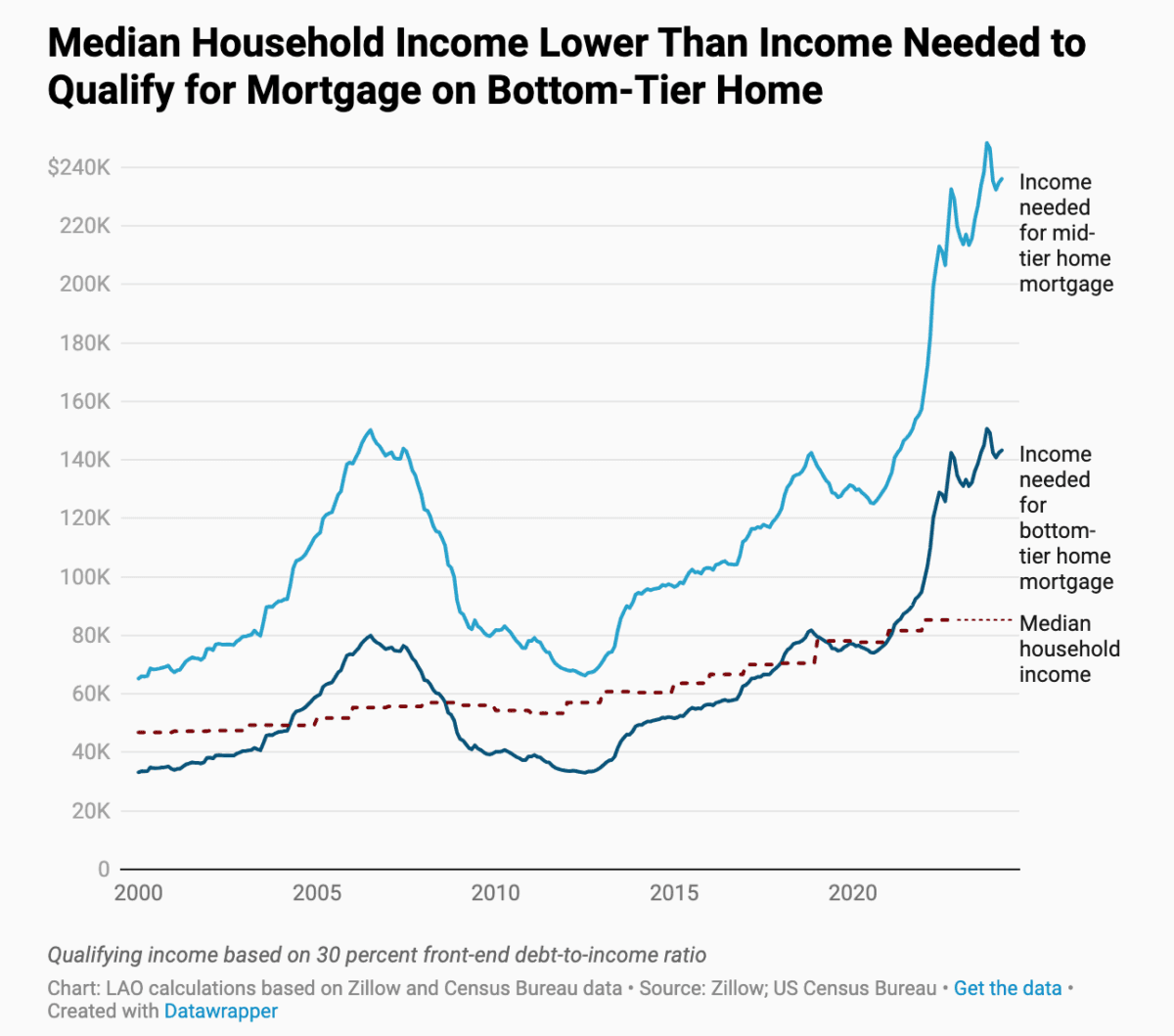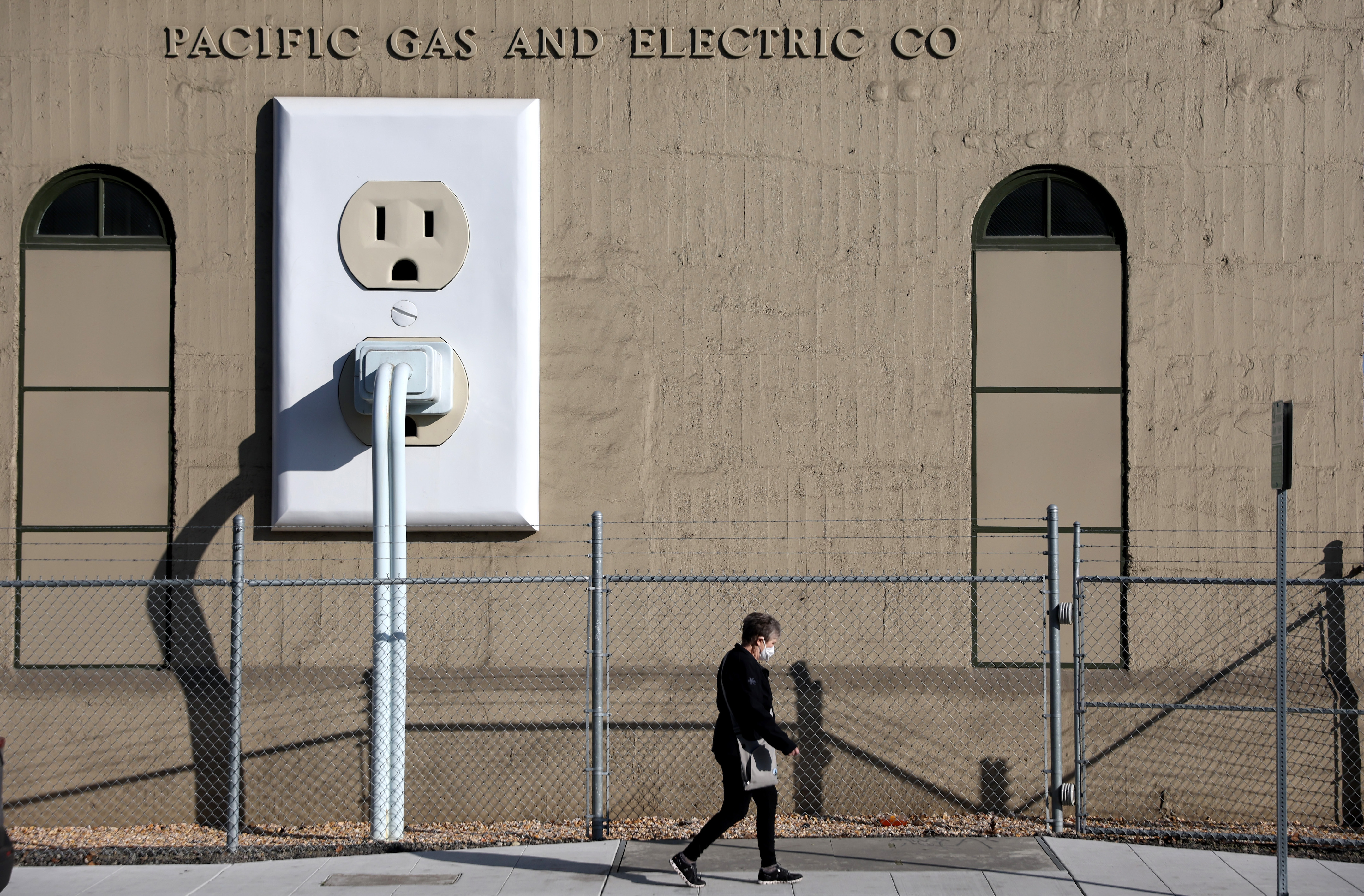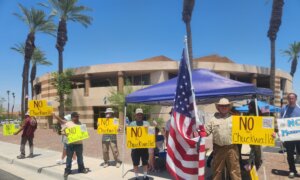Commentary
One of the themes in my Epoch Times articles is how “equity” can be a euphemism for socialism. Instead of production by individual effort and competition in the free marketplace, extreme equity means outcomes dictated by government bureaucrats. It’s a version of Soviet central planning, which actually did produce economic goods, but at an immense cost in waste and lost freedoms even after the mass purges ended.
Such will be the new “flat rate” electricity payment system approved May 9 by the California Public Utilities Commission (CPUC) as a result of Assembly Bill 205, signed into law by Gov. Gavin Newsom in June 2022. It will be implemented in late 2025 and early 2026.
Consider the
announcement’s title: “CPUC Approves A New Billing Structure That Will Cut Residential Electricity Prices And Accelerate Electrification: ‘Flat Rate’ decision accelerates California’s clean energy transition.”
It redundantly uses both “accelerate” and “accelerates” to emphasize what it’s really about, “California’s clean energy transition.” The supposed “cut” in “residential electricity prices” is just the bait to get people to go along with the “decarbonization” goals.
“This new billing structure puts us further on the path toward a decarbonized future, while enhancing affordability for low-income customers and those most impacted from climate change-driven heat events,” said CPUC President Alice Reynolds, as quoted in the announcement. “This billing adjustment makes it cheaper across the board for customers to charge an electric vehicle or run an electric heat pump, which will spur greater uptake of these technologies that are essential to transitioning us away from fossil fuels.”
The actual cost structure is complicated. But this is from the CPUC’s May 9 “Energy Division Fact Sheet”:
- A “flat rate at $24.15 per month, which will reduce the price of a unit of electricity by 5 to 7 cents per kilowatt-hour.”
- “All customers, regardless of income or location, will be better off financially if they choose to electrify their homes and/or vehicles under the new billing structure compared to today’s rates. ... A customer that electrifies their home and vehicle will save on average $28-44 a month compared to under today’s rates.” That assumes they can afford electric cars, which are more expensive to buy and maintain than gas-power cars, and new electric stoves.
- The rate will be $6 per month for “Customers enrolled in the California Alternate Rates for Energy (CARE) low-income assistance program.”
- The rate will be $12 per month for “customers enrolled in the next level up of income qualified program, the Family Electricity Rate Assistance (FERA), as well as those residing in deed-restricted affordable housing with incomes at or below 80% of the area median income.”
- No income verification will be required, only proof of membership in CARE or FERA, which already have verified the incomes of recipients.
With all that money being saved, where will the utilities get the money to run the system? Calmatters
reported April 19, “The biggest losers will be middle income households who just miss the cut-off for a discount and who currently have small energy bills. The biggest winners will be the biggest users.”
And Free Beacon reported on May 10, “Millions of middle-class California households are poised to pay an extra $24 per month for electricity, regardless of how much electricity they use. Regulators are hoping this utility billing policy will rescue their agenda to move everyone to electric cars and appliances by redistributing the massive costs of the state’s electric grid so utilities can lower their usage rates.” That’s $288 more per year.
Of course, we really won’t know the actual cost until the new rates are imposed 18 months or more from now. The CPUC could find rising costs for the utilities mandate higher “fixed” pricing.
Moreover, it’s worth remembering in California the “middle class” starts at over $100,000 of family income. That’s well above the CARE and FERA limits quoted above.
The Legislative Analyst Office’s April “California Housing Affordability Tracker” pegged the income needed to afford a mid-tier home mortgage at $235,000. And it’s $140,000 for a bottom-tier mortgage—a tiny condo. That means the middle-class is going to get gouged by the CPUC’s new rate structure. The LAO’s chart follows.

(California Legislative Analyst’s Office)
Shocking Problems Coming
Although the new
system is designed to promote “equity” and a “clean energy transition,” the lower rates for low-income households could just encourage them to use more electricity. A low-income person with a rich neighbor also could run cords across a fence and sell his low-cost electricity to the rich neighbor at a discount.
Another big problem is calculating what a person’s net worth or wealth is, Robert Michaels, a professor at Cal State Fullerton and California’s top energy economist, told me. In March, I covered his recent research in, “New Study Refutes Newsom’s Charge of Big Oil ‘Price Gouging.’”
“The only data they have is the current income or something approximating that,” he said of what’s being used in the new “fixed-rate” system. “Or they could use current property values. But they don’t have anything more than that, and there are so many different ways to compare people on wealth.”
For example, a retiree might live on a low fixed income but live in a $1 million home bought in 1980, on which low property taxes are paid because of Proposition 13.
Another “equity” aspect he mentioned is “lifetime exposures,” because people’s incomes vary over time. Students usually are poor but get taxpayer subsidies for learning how to make more money in the future. In some cases it’s for such high-paying fields as computers or medicine. But while in school, they’ll be paying the low electricity rate.
Other pieces of the “equity” equation include such things as getting married, how many children one has, or just plain luck. In sum, he said, “Nobody knows what equity means you should have. And the whole point of this proposal is to sweep that under the rug.”
Mr. Michaels also warned the CPUC and legislators won’t be able to resist tinkering with new criteria on top of the existing “equity” and “clean energy transition.” It will be much as how the DMV is required to suspend the license of someone behind on child support. He said, “Basically it’s the first step down the slippery slope to socialism.”
No Global Decarbonization
We also discussed something I’ve brought up many times in my Epoch Times articles: the world isn’t listening to California and is barreling ahead with more carbon-based energy production, especially from coal.
“They’re saying it’ll help with decarbonization,” he said. “Is there any proof of that? No. Because whatever gets emitted into the atmosphere here has to be compared against stuff that gets emitted into the atmosphere elsewhere. You basically still have all of Asia planning on having even bigger carbon emissions over the long haul.”
My most recent article on this is from May 13: “CO2 China Comparison Shows Shortcomings of California’s Cap-and-Trade Program.”
In sum, the new rate structure is just another scheme to allow the politicians to say they’re “doing something” about “climate change,” “equity,” and who knows what else in the future. The poor and those driving electric cars will get subsidies.
But the higher costs will be paid, once again, by the middle class.















